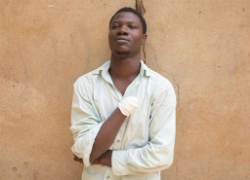
This land-locked, former French colony, nestled in the Sahara Desert could become a key point for the next war on terrorism as attacks against civilians in the north grow more brutal. Radical Islamists have transformed vast stretches of desert in the north into an enclave for al-Qaeda militants and other jihadists. They have imposed a hard-edged brand of sharia law, echoing Afghanistan’s Taliban movement, in this West African country where moderate Islam has thrived for centuries.
The Islamist radicals who seized a vast arc of territory in northern Mali in the spring are intensifying their brutality against the population. “The people are losing all hope,” said Sadou Diallo, a former mayor of the northern city of Gao. “For the past eight months, they have lived without any government, without any actions taken against the Islamists. Now the Islamists feel they can do anything to the people.”
People are deprived of basic freedoms, historic tombs have been destroyed, and any cultural practices deemed un-Islamic are banned. Refugees fleeing the north are now bringing stories that are darker than those recounted in interviews from this summer.
Today, the area is under Islamist control and sharia law; stonings and mutilations — not to mention the conscription of children — are “widespread,” according to the United Nations. Two weeks ago, U.N. Deputy Secretary General Jan Eliasson told U.N. members that sexual violence is prevalent in the region.
By some estimates, more than half the population of 60,000 has fled; a majority of the refugees in Segou and the capital, Bamako, are from Timbuktu, said Western refugee officials and community leaders.
Alexis Kirkman is a 3L and a Candidacy Editor on the Denver Journal of International Law and Policy.

